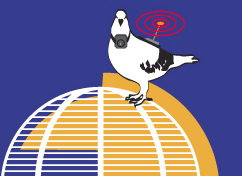Joline Blais
Visitor
|
Beyond Commons1: Grounded Stories - 2006/05/16 12:03
"Belonging" as an Alternative to Property
Primarily this is a way of seeing ourselves as part of a "web of life" rather than as creatures who control or dominate nature. We do this on vacation when we travel to a National Park, or go camping: we do something like this when we contribute audio to Creative Commons with an open license. But these are all exceptions to a rule of domination which eventually comes to dominate us. In a culture of Belonging, property is the exception that needs a legal document to justify, just as now copyleft is the exception that requires justification in a closed & commodified economy.
Most humans through most of our evolution operated on notions not of property, but belonging. The expulsion from Eden may be a story about the moment when Fertile Crescent peoples were thrust out of the web of life, when they tried to act as gods, and when they thus sealed their doom. As anthropologist Fred Myers notes, the Pintipu word for property means relations. Winona Laduke, Anishinaabeg and former candidate for vice president, writes about pollution of the land, and thus ourselves, under the title, All Our Relations.
In The Practice of the Wild, poet Gary Snyder describes Belonging as a specific kind of connection to land that can be found among indigenous peoples, and he traces the etymological divide between wild & civilized. He defines wild societies as those that resist economic and political domination by civilization, those "whose economic system is in a close and sustainable relation to the local ecosystem." (Snyder 10). In this equation civilization is domination, and loss of freedom. To be free paradoxically involves a sense of Belonging (as opposed to ownership). Ownership is what revokes our freedom--which reveals the American Dream to promote the opposite of what it promises, to be in fact, a nightmare.
But if indigenous, or de-colonized concepts of freedom are based on sustainable relations with local ecosystems, then is freedom even possible in digital space?
My suspicion was that those repressed freedoms would find a way of returning, and in the largely unpoliced territory of the internet, we might find some hankering of those lost freedoms, might explain the jubilation of 40 million users trading mp3 files across Napster iby the end of its first year. That's an earthquake in property rights, in a sense a sense that culture "belongs to us". Those hankerings for Belonging can also be found in three other kinds of works: "grounded stories," "indigenous networks," and "webs of trust.".
Grounded Stories
These involve stories in which the land is a key feature--not as passive "setting"--as we see in print stories; but as active moral agents as we see in for example, Apache 'agodzaahi stories which teach proper behavior by linking it to a specific site, which then reminds the listener of the moral lesson each time she walks by that site. This relationship can also be seen in Australian Aboriginal Songlines, or "Dreamings" which are maps--moral and cultural as well as physical--to the lands they belong to. Matt Leavitt, one of my students has completed a design for HomeQuest--a mapping of stories onto the houses and neighborhoods where they belong.
more soon on Indigenous Networks & Webs of Trust
|
